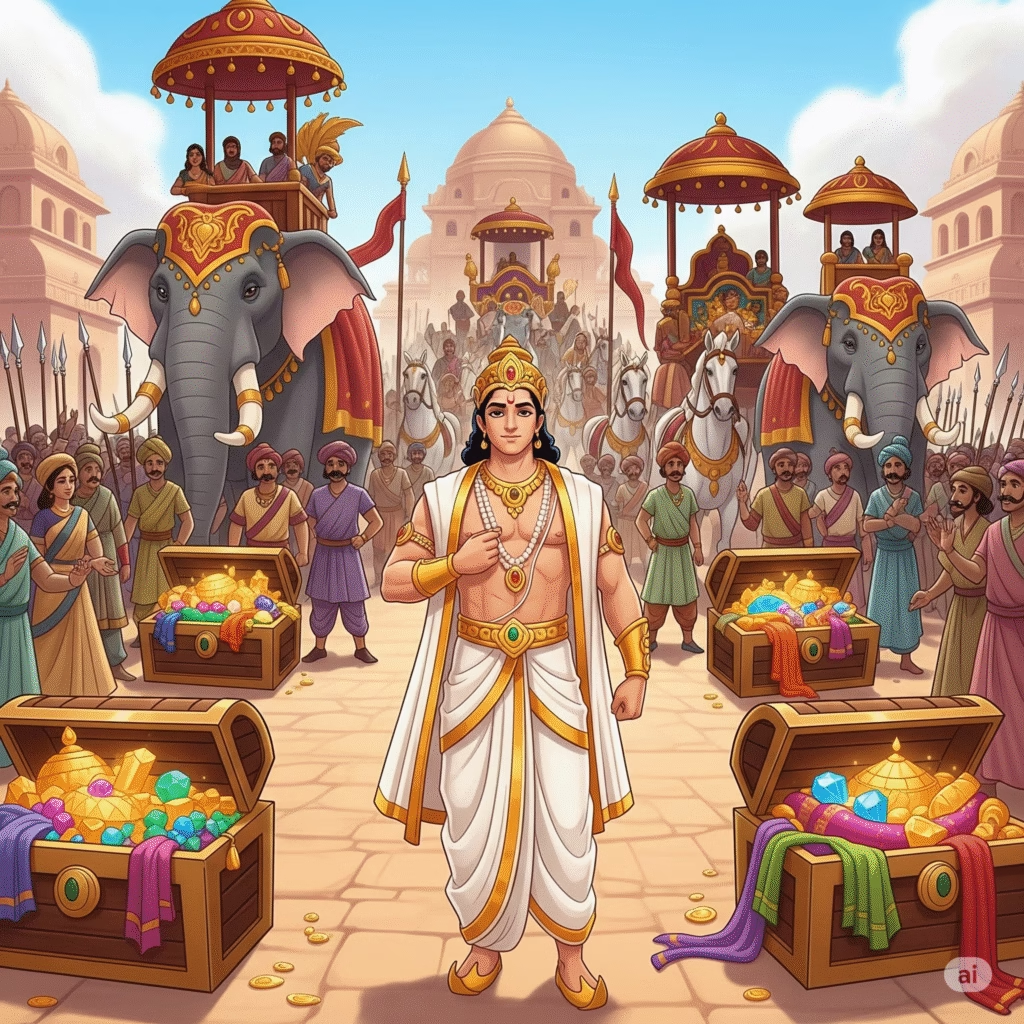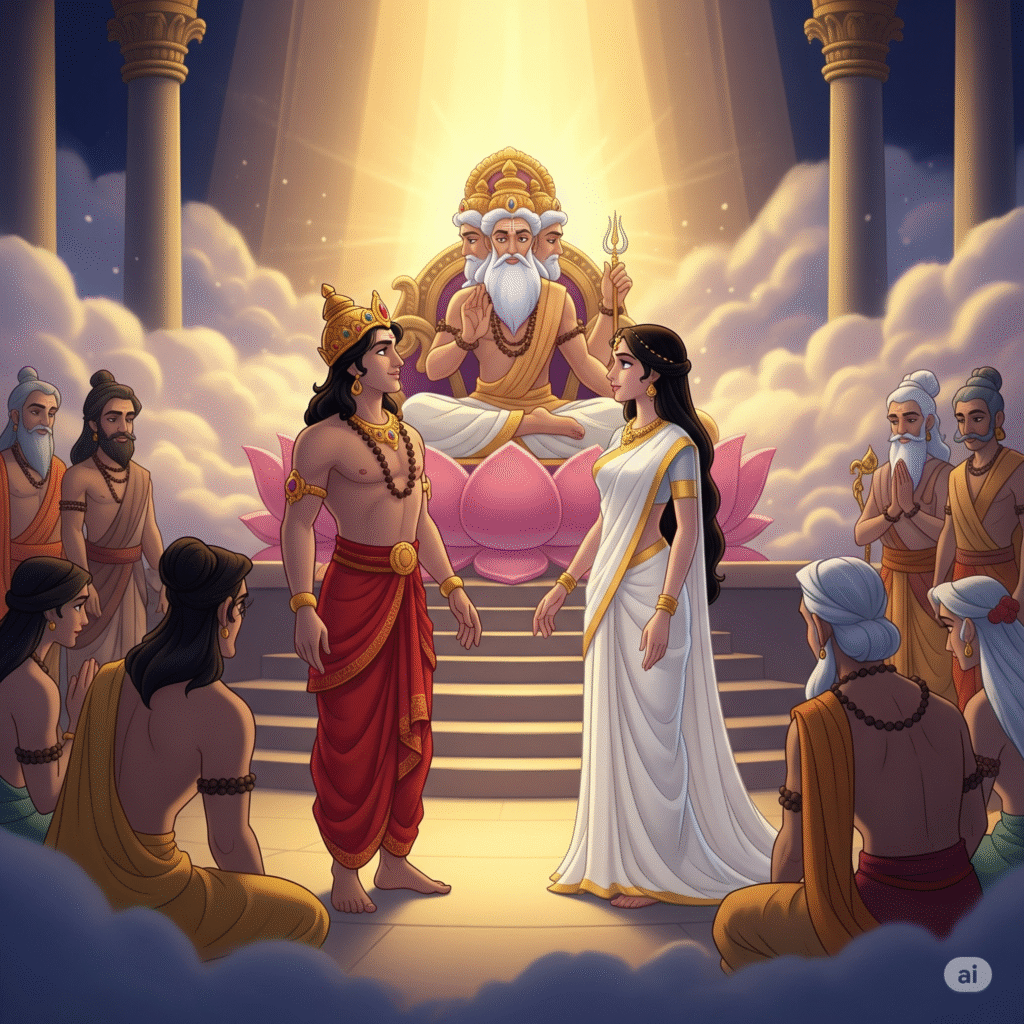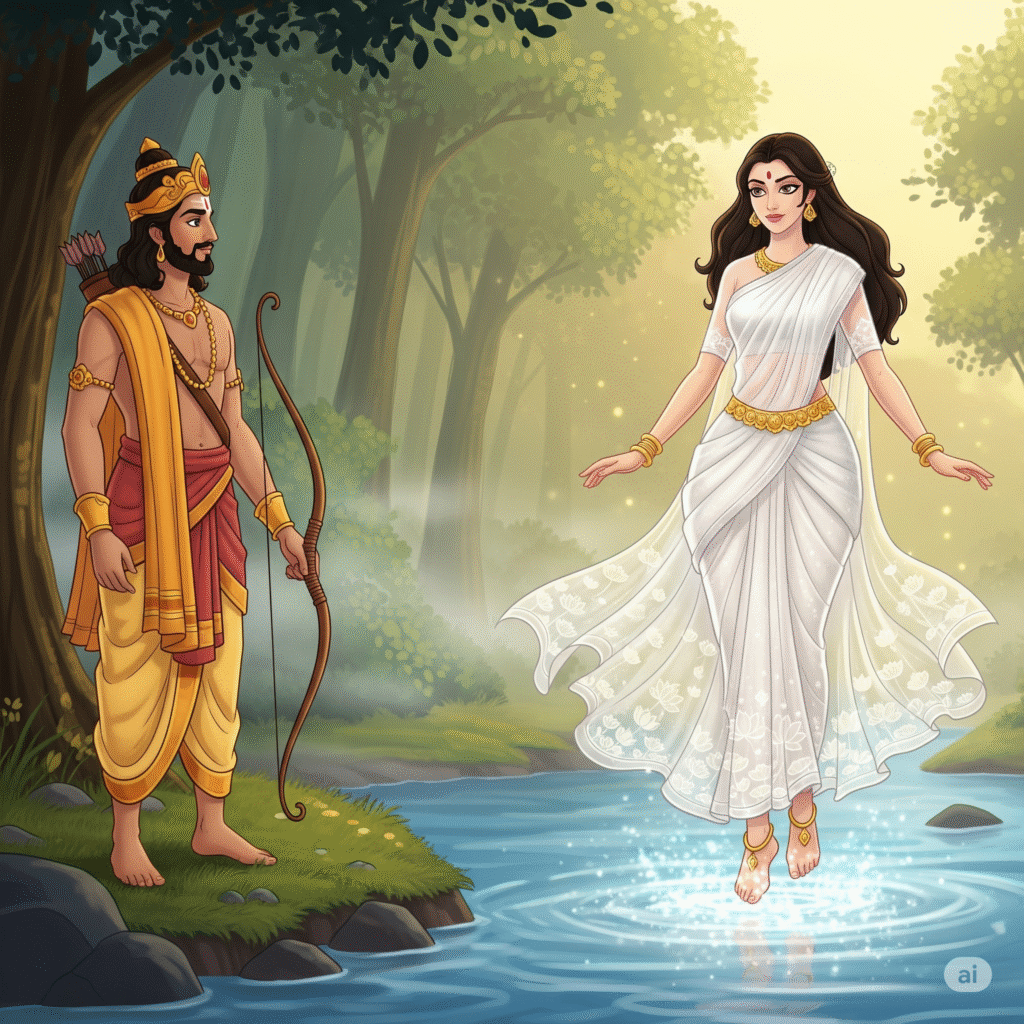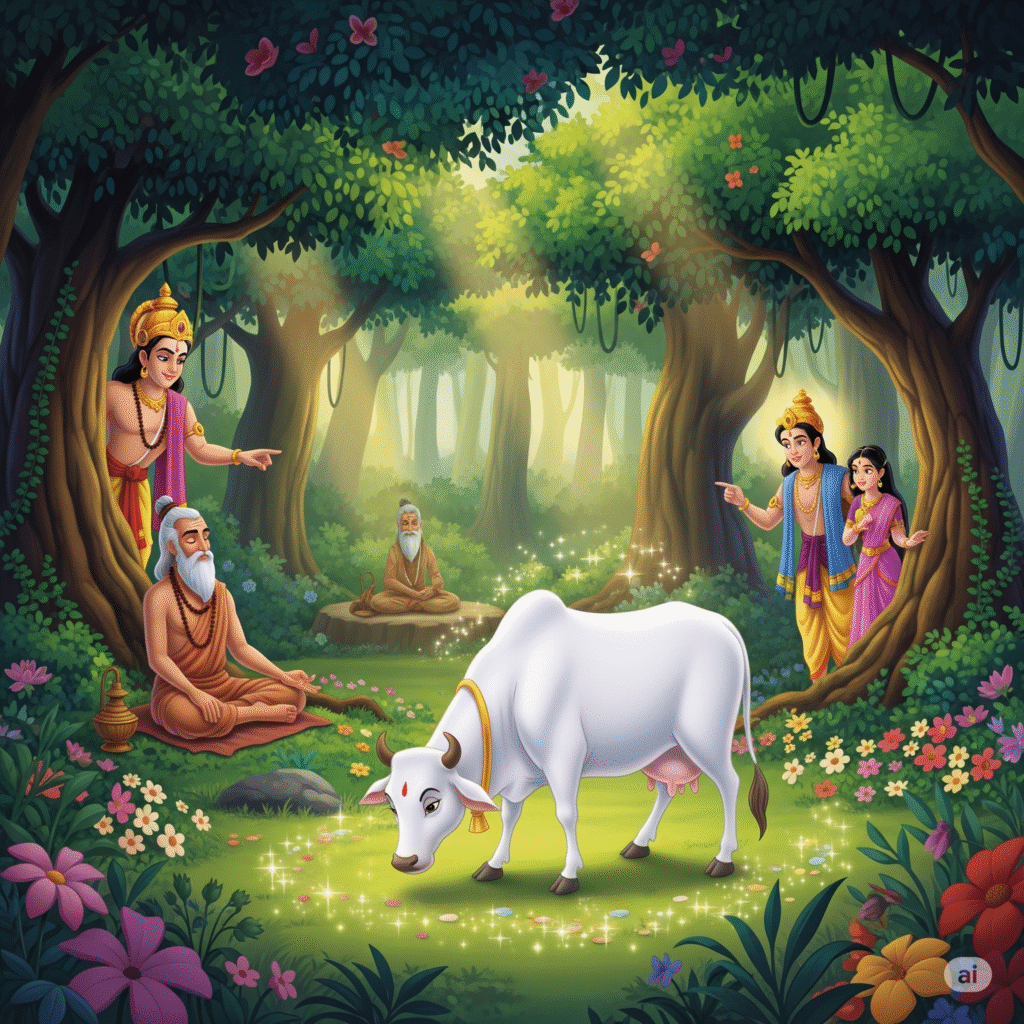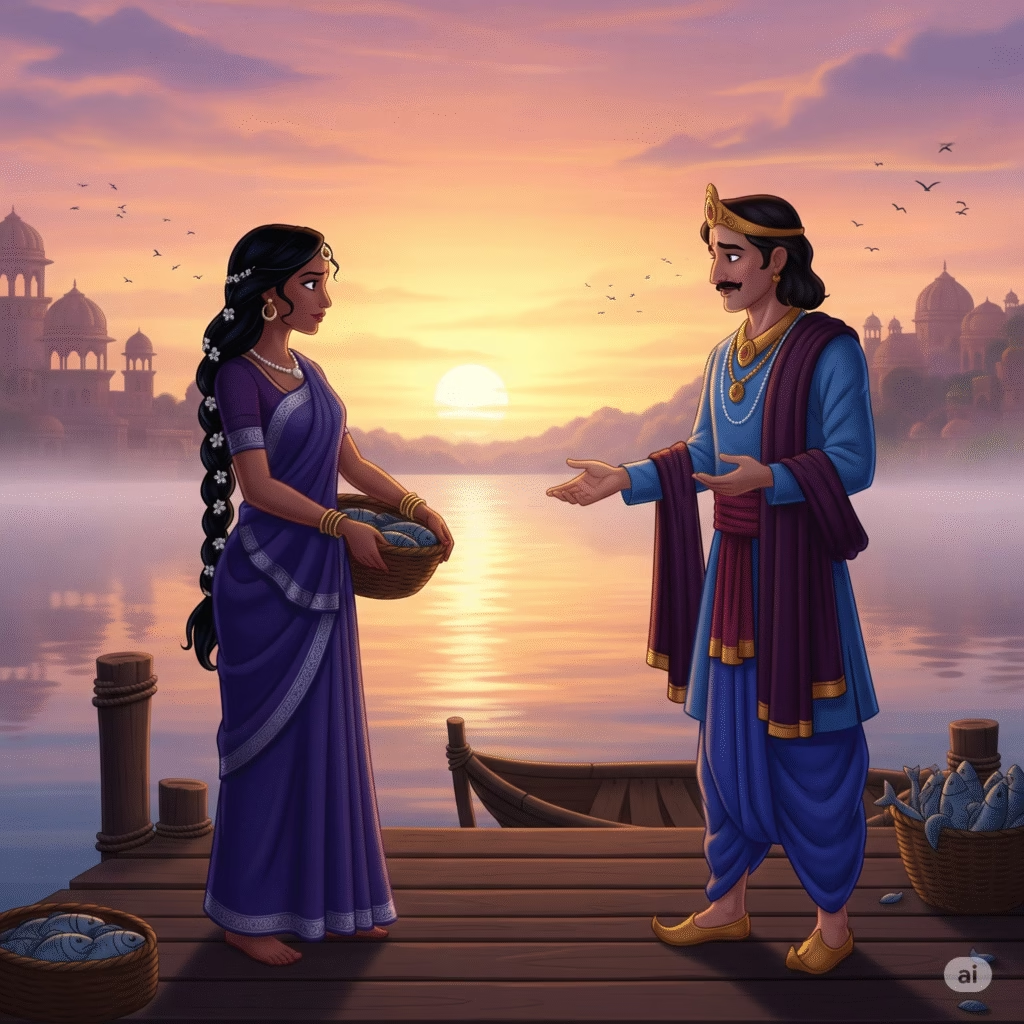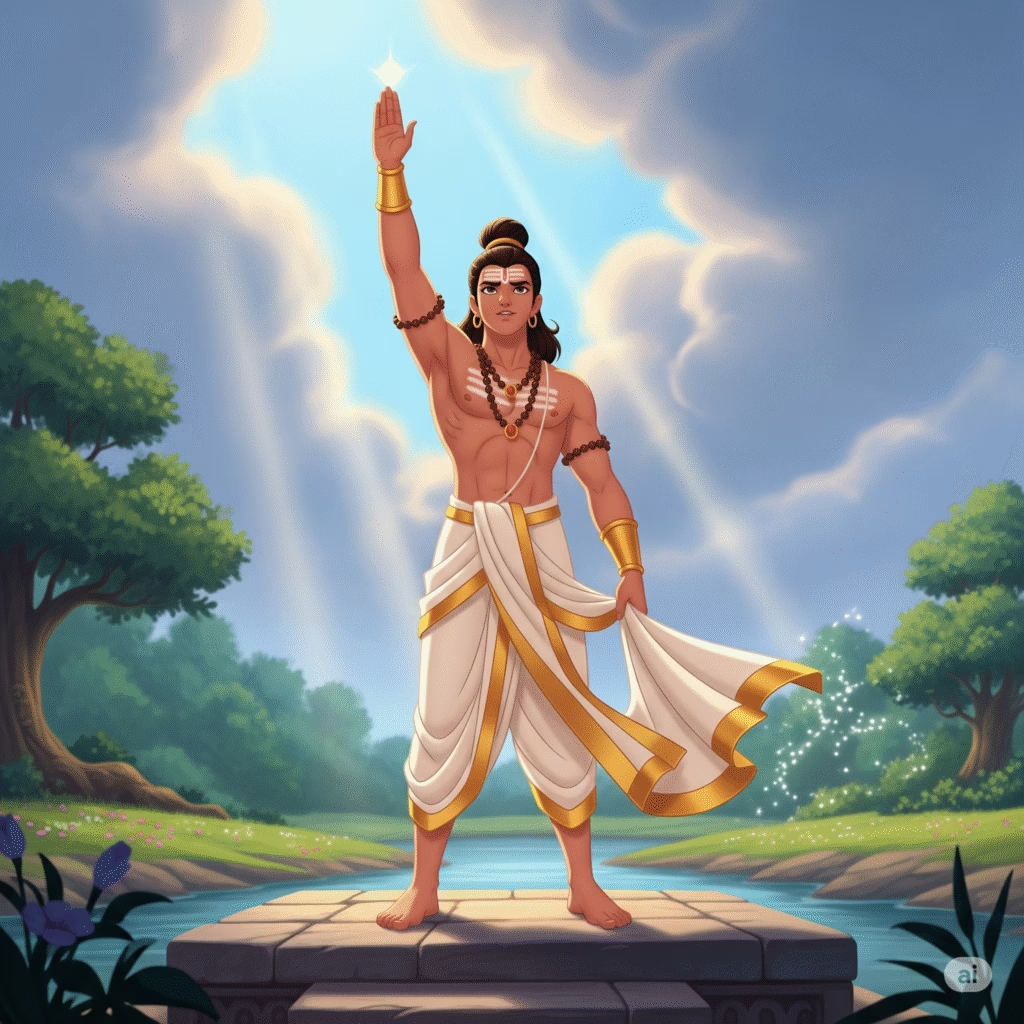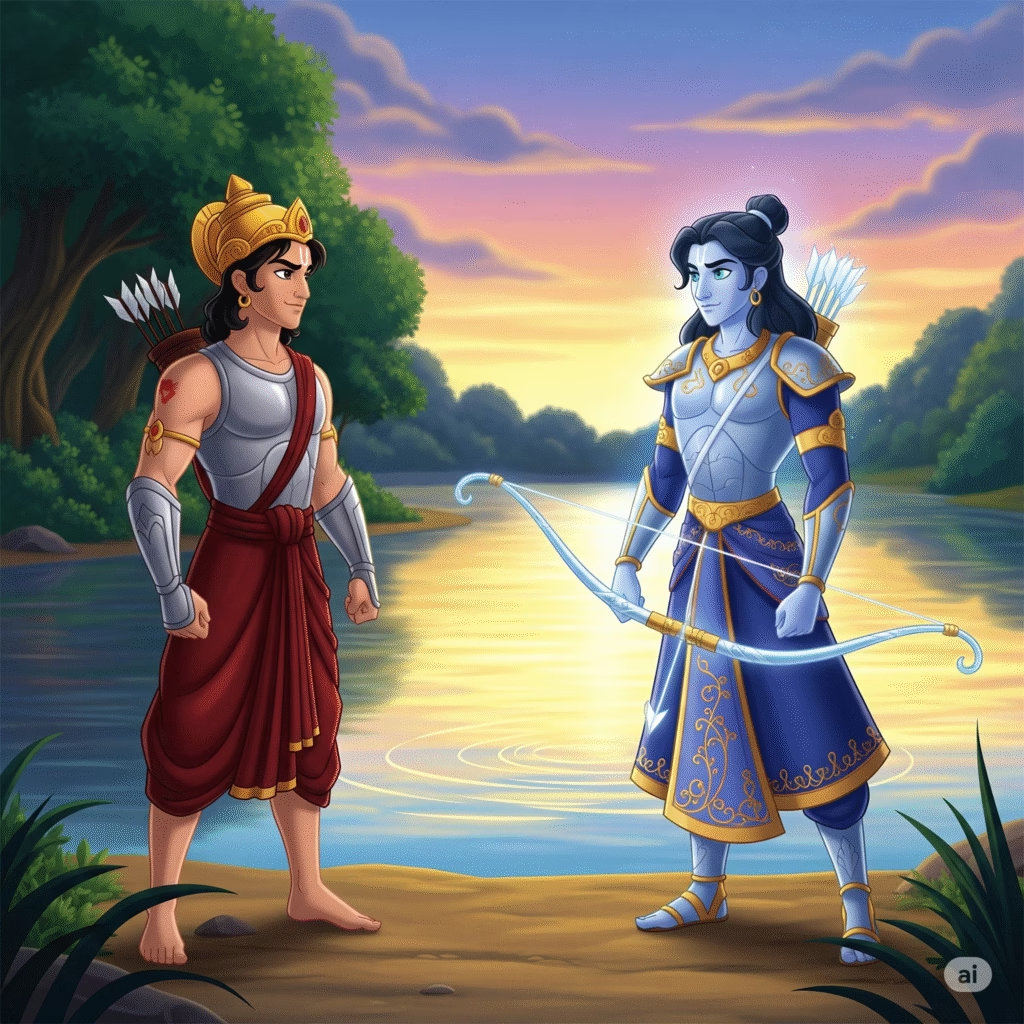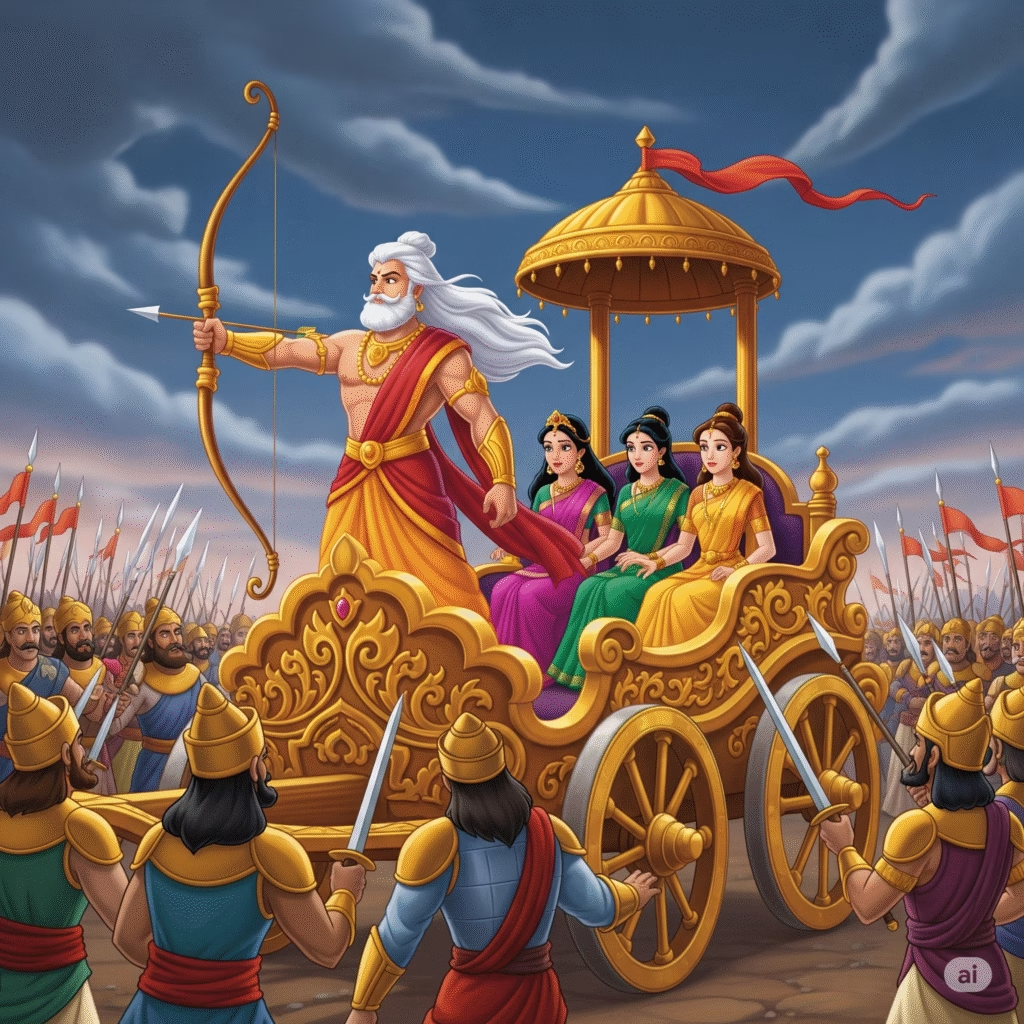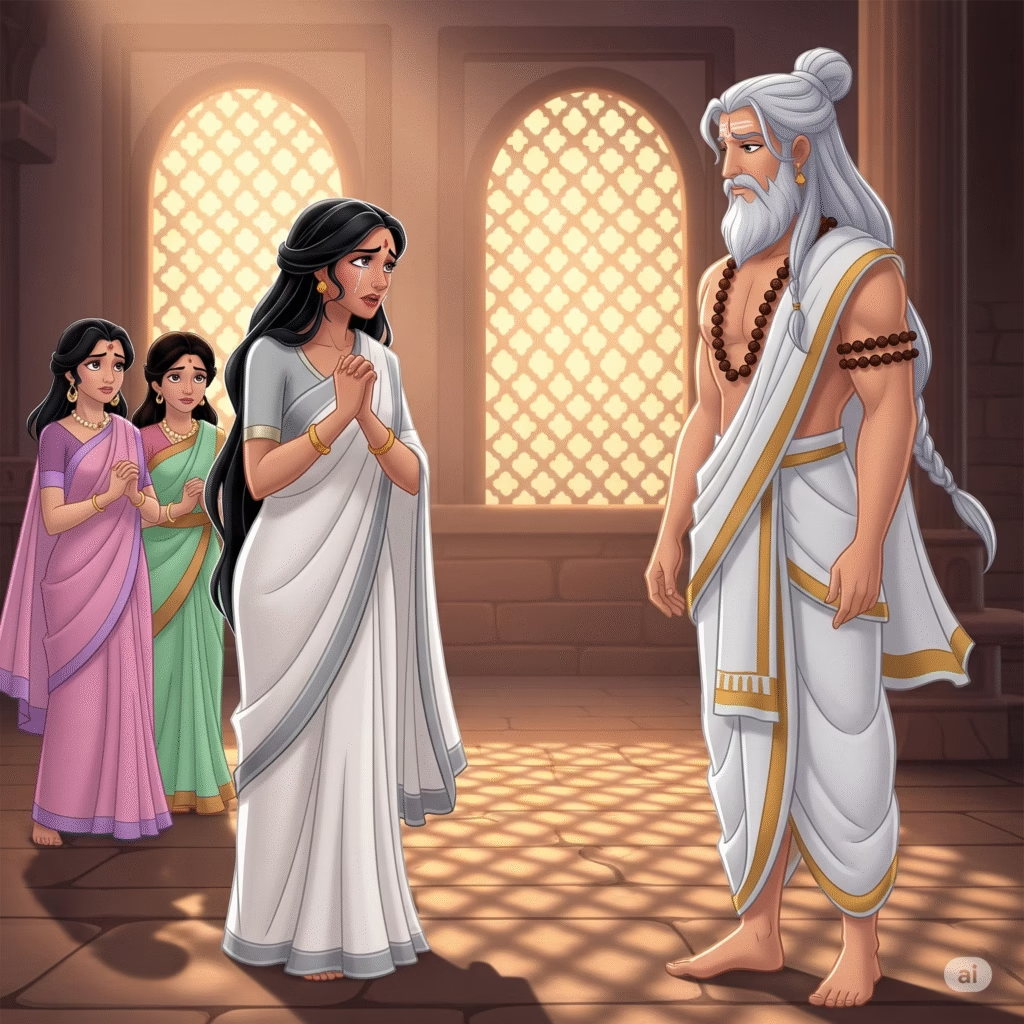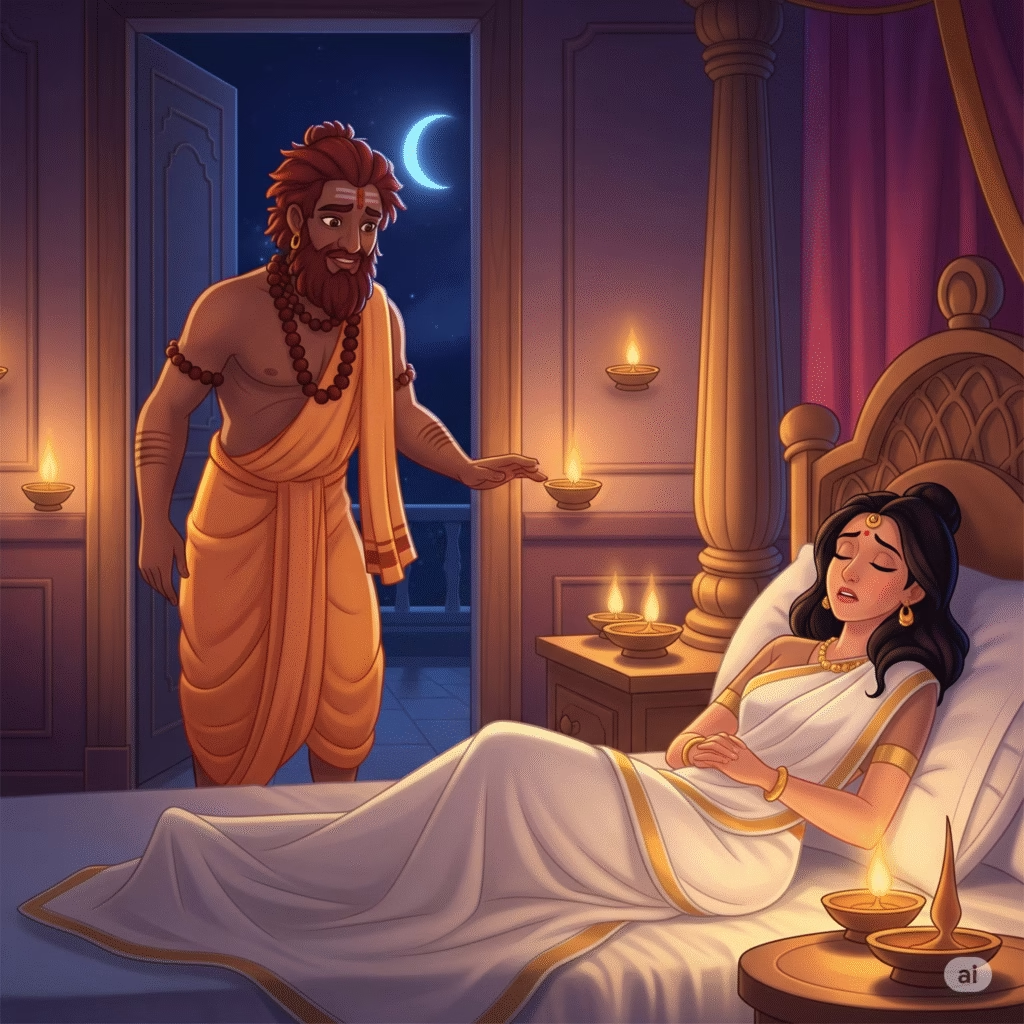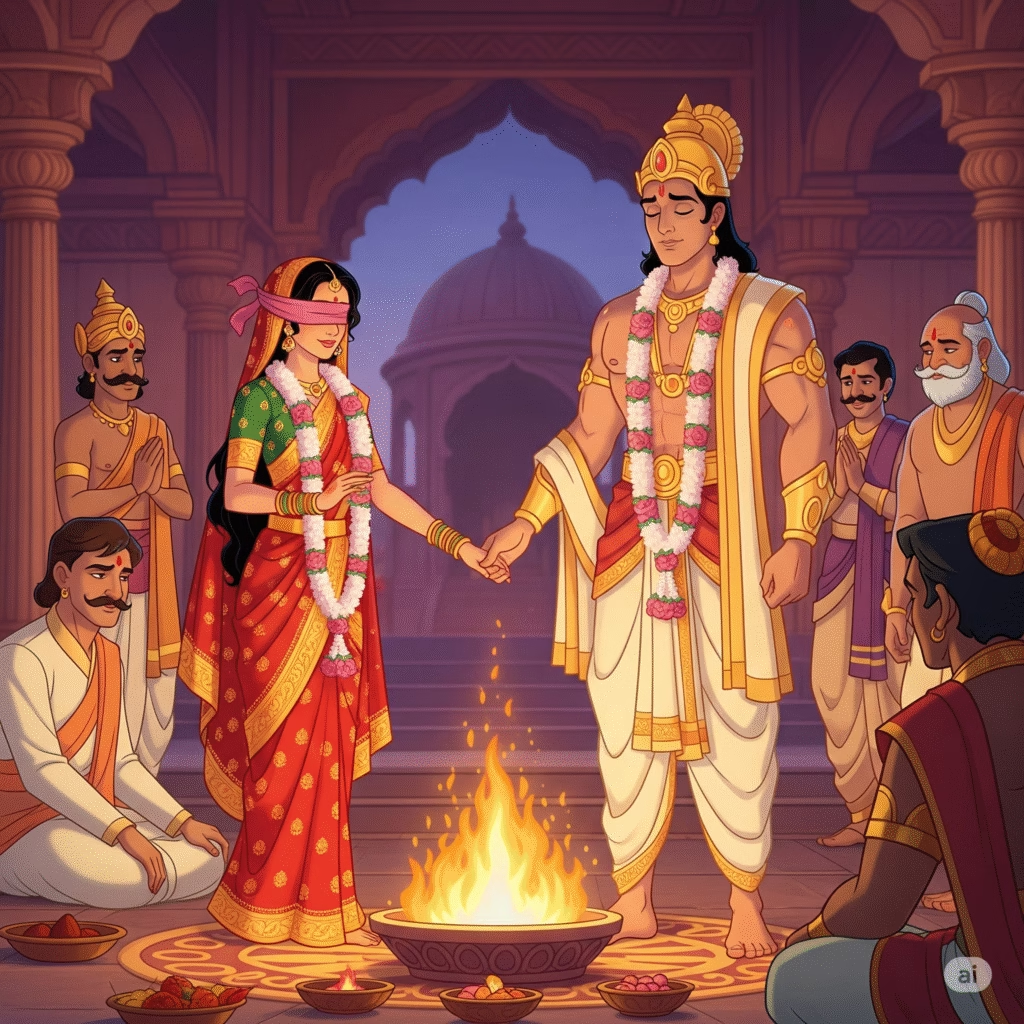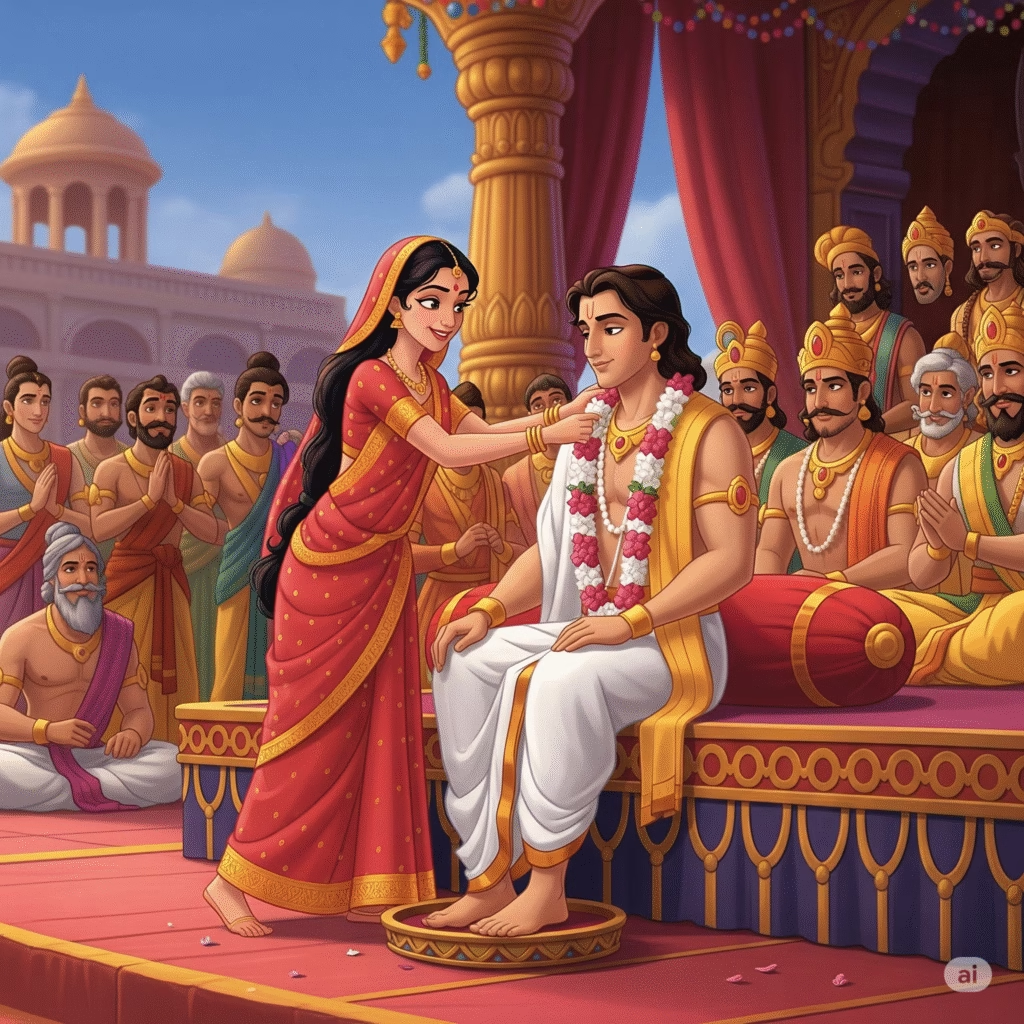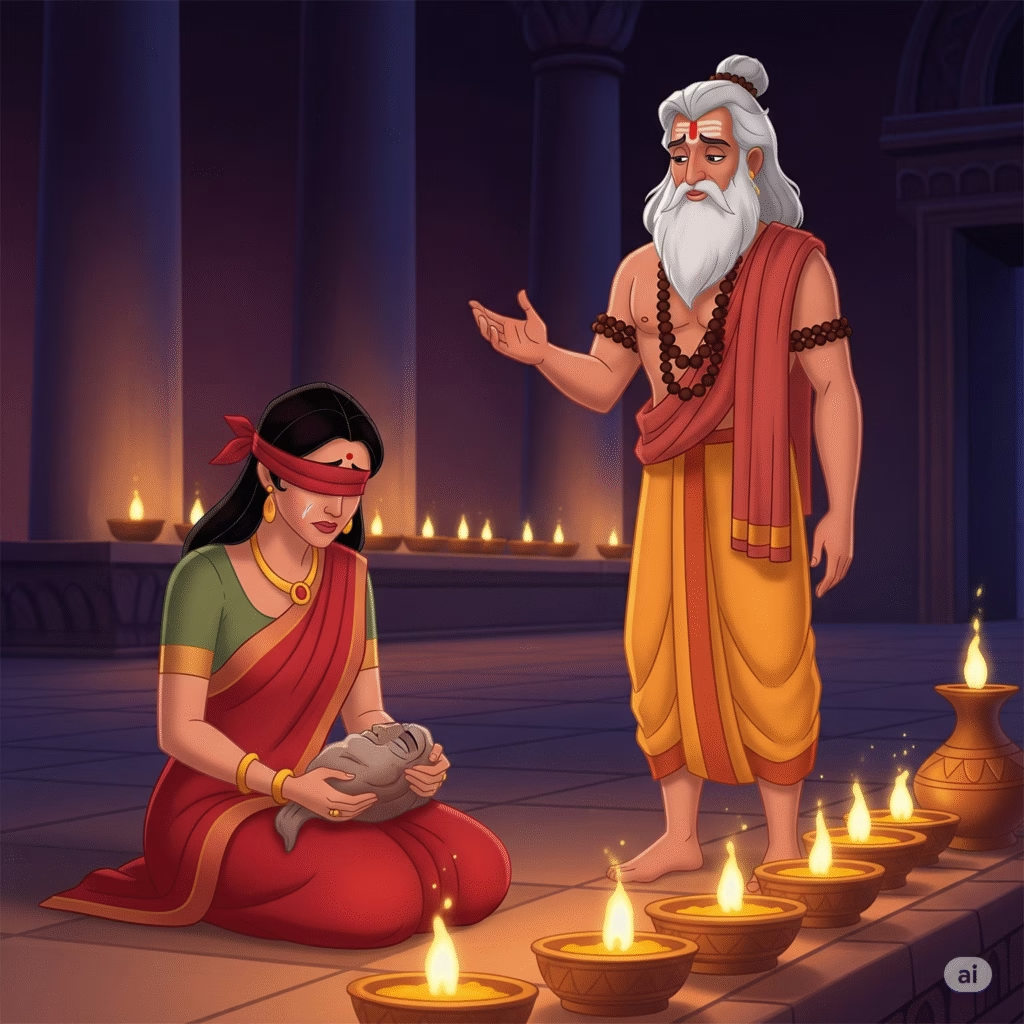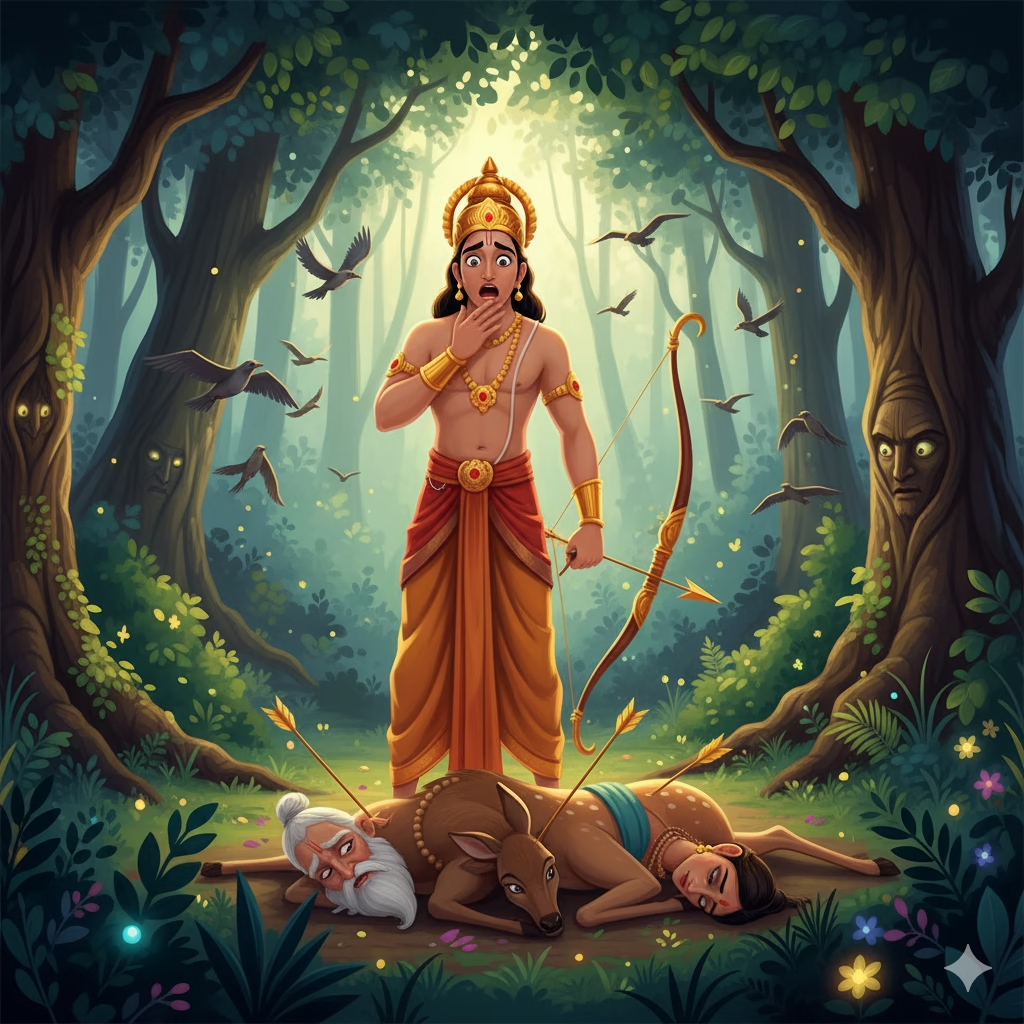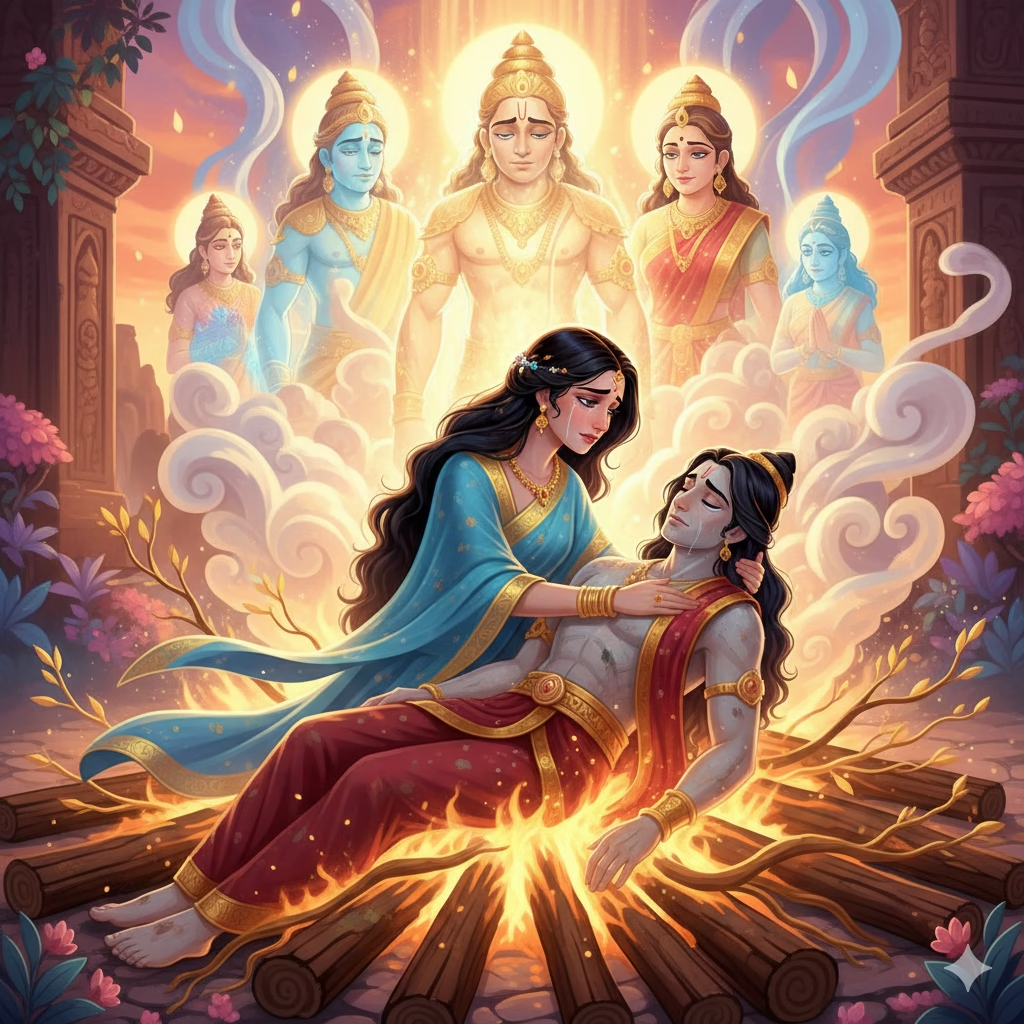After his marriage to Kunti and Madri, King Pandu ruled Hastinapura with joy, grace, and a heart brimming with contentment. He fulfilled every royal duty and lived harmoniously with his two queens. But a fire stirred within the young monarch. A yearning to expand the legacy of the Kuru race, to carve his name into the earth like his ancestors had. Seeking blessings from Bhishma, Dhritarashtra, and the elders, Pandu left Hastinapura—his capital, his comfort, his young queens—to launch a military campaign that would shake the subcontinent.
Pandu was no ordinary king. He blazed with the aura of a celestial. Leading a mighty army of chariots, elephants, cavalry, and footmen, he first defeated the defiant rulers of the eastern lands—Dashaarnas, Magadha, and Videha. Then came the conquests of Kashi and the kingdoms of Suhma and Pundra. One by one, their pride fell to the power of Pandu’s bow. No cruelty. No greed. There was only justice and sovereignty. He defeated those who had once raided Kuru lands, reclaiming not just territory but dignity. With every battle, he spread the fame of the Kurus, like a roaring lion protecting its pride. The earth echoed with tales of his unmatched valour. And what followed was the tide of surrender. Kings across Bharatavarsha—humbled and awed—brought treasures: gold, gems, pearls, silks, rare beasts, and exotic ornaments. These were not mere spoils of war. They were tributes, offered with folded hands to a king who fought with honour. With this vast bounty and the blessings of the vanquished, Pandu returned to Hastinapura—not as a warrior, but as a redeemer.
The streets of Hastinapura rejoiced. Bhishma himself stepped out to welcome the victorious son of Hastinapur. It was as though the city, which had once lost its soul to grief and sacrifice, was breathing again. The people of the town and the countryside looked upon Pandu with pride and joy. They spoke of him in whispers and roars. He was not just a king, they said—he was the revival of the Bharata lineage. He bowed at Bhishma’s feet and shared the riches with his family. The treasures were distributed between Satyavati, Ambika, Ambalika, Bhishma, Dhritrashtra and even Vidura. He honoured the sages. He honoured Dharma. Even Dhritarashtra, the elder brother, was treated with affection and deference.
And just when the world had begun to bask in the light of his reign, Pandu—warrior of the earth—did something no one expected. He renounced it all. The throne. The luxuries. The palace with its marble floors and scented chambers. He walked away with Kunti and Madri, deep into the solitude of the forest. He hunted, wandered, and lived amidst towering sal trees and the echoes of wild creatures. Armoured, bow in hand, with his queens beside him, Pandu looked like a god to the forest-dwellers. Indeed, many believed he was one. He made his home in the southern Himalayas, where rivers sang hymns and the winds whispered secrets of time. People from the cities, drawn by his presence, would bring him offerings—not because he asked, but because his soul invited reverence. And so, Pandu lived—no longer as a conqueror, but as a seeker. Not on a throne, but under the open sky. Not with fanfare, but in peace.
Pandu won everything—land, wealth, honour, and praise. He was called a hero by men and gods alike. But when he returned, he gave it all away. Why? What is the point of ambition if it doesn’t leave room for peace? What is the point of a crown if it weighs more than your soul can carry? Sometimes, the deepest victories lie not in conquest but in renunciation.
Journaling Prompts
- What are you chasing today? Is it truly yours to chase, or have you borrowed someone else’s idea of success?
- Can you think of a time when you won something, but it didn’t bring the peace you thought it would?
- What would you give up today if peace became your only goal?

